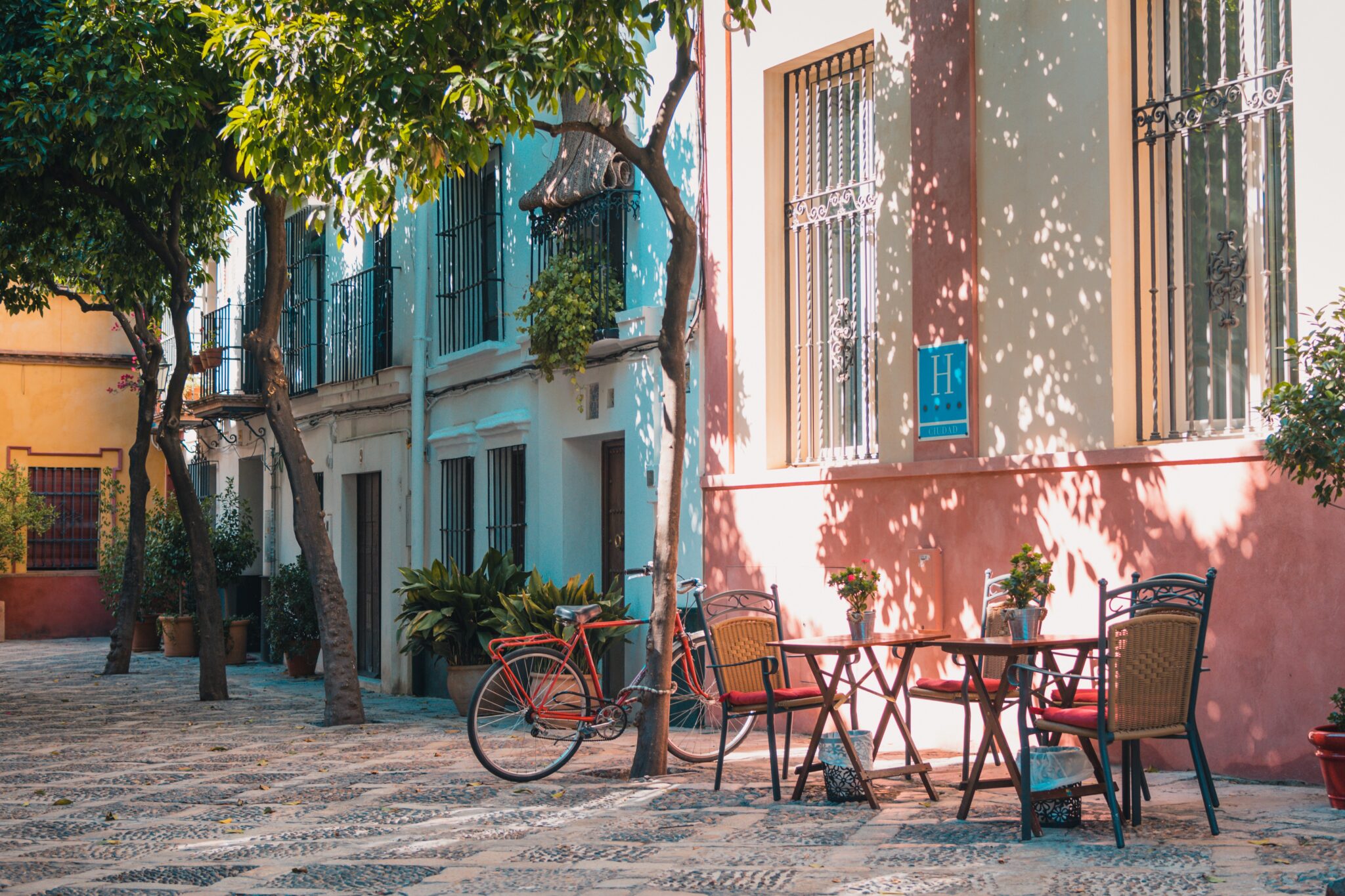Selling a property in Spain is a significant financial transaction that requires careful preparation and a clear understanding of the legal landscape.
For many homeowners, especially those unfamiliar with the Spanish property market, the process can seem daunting. The key to a smooth and successful sale lies in the meticulous gathering and preparation of the correct documentation. This not only ensures compliance with Spanish laws but also instills confidence in potential buyers, paving the way for a transparent and efficient transaction.
Whether you’re selling a cozy beachfront apartment in Costa del Sol or a historic villa in the heart of Valencia, having all your paperwork in order is the first critical step towards closing the deal with ease and precision.
Essential documents for selling property in Spain
As a foreign homeowner in Spain, compiling the right documentation is crucial to facilitate a seamless sale. Here’s a detailed look at each essential document and its significance in the sales process:
- Property’s Title Deed (Escritura de Propiedad): This legal document is issued by a notary after the property’s initial purchase. It includes your details as the owner, a thorough description of the property, boundaries, and any rights or obligations associated with it. Ensure this deed is updated to reflect any changes made since the purchase.
- Efficiency Energy Certificate (Certificado de Eficiencia Energética): This certificate provides a rating of your property’s energy consumption and carbon dioxide emissions. It must be obtained from a certified professional and is valid for ten years. Prospective buyers have the right to view this certificate before the sale.
- Proof of Mortgage Cancellation (Certificado de Cancelación de Hipoteca): If the property was under a mortgage, a ‘zero balance’ certificate from the bank is required. This document must then be presented to the Land Registry to update the property’s records, confirming there are no pending charges against it.
- Latest Payment of Bills: Collect the latest bills for water, electricity, gas, and any other utilities associated with the property. These should show that accounts are fully paid and up-to-date, ensuring no liabilities are transferred to the new owner.
- Real Estate Tax (IBI) Documentation: The IBI is an annual tax, and proof of payment is mandatory when selling. This document can be obtained from the local tax office and should show that all due taxes up to the current year have been settled.
- Habilitation Certificate (Cédula de Habitabilidad): Also known as the ‘Occupancy Certificate,’ it confirms that the property complies with local living standards. It’s a mandatory document in some regions and must be renewed periodically.
- Community-related Documents: If your property is part of a homeowners’ association, you’ll need the latest General Assembly meeting minutes and a certificate from the president of the community confirming that you are up to date with all payments. This is crucial as unpaid fees can legally pass on to the new owner.
- Technical Inspection Of Buildings (Inspección Técnica de Edificios): Properties over a certain age must undergo this inspection to ensure they meet safety standards. The requirements vary by location, so check with local authorities whether this applies to your property.
Each document plays a pivotal role in the transparency and legality of the sale. It’s advisable to start gathering these documents early to avoid delays. Consulting with a local real estate expert can also provide additional clarity and ensure that no detail is overlooked.
The selling process in Spain
Navigating the selling process in Spain can be a complex endeavor, especially for foreign homeowners. Understanding each step is essential for a smooth and successful transaction. Here’s what you need to know:
Preparing your property for sale
Before listing your property, it’s important to ensure that it is in the best possible condition to attract buyers. This might involve minor repairs, a fresh coat of paint, or professional staging. Remember, first impressions count, so consider hiring a professional cleaning service to present your home in a pristine, welcoming state.
Choosing the right selling option: Private vs. agency
Deciding whether to sell privately or through an agency is a significant choice. Selling privately can save you agency fees, but it requires a lot of personal time and effort. An agency,like Bluekey Homes, on the other hand, can provide valuable market insights, advertising, and handle viewings on your behalf. They can also offer expertise in negotiating deals, which can be particularly beneficial for those unfamiliar with the local market.
Listing and showcasing your property
Listing your property involves more than just putting up a “For Sale” sign. It’s about marketing your property effectively. High-quality photos, and possibly even a virtual tour, can showcase your property to potential buyers worldwide. An accurate, enticing description highlighting key features and amenities can also make a significant difference.
Negotiating offers and reaching an agreement
Once offers start coming in, it’s time to negotiate. This stage requires a good understanding of the current market to evaluate offers effectively. It’s not just about the highest bid; it’s also about the buyer’s position. Are they part of a chain? Do they have their finances in order? Once you accept an offer, a private contract is typically signed, and a deposit paid, leading to the drafting of the final deed (escritura de compraventa) to be signed in front of a notarylike blukey
Timeline of a property sale in Spain
Understanding the timeline of selling your property in Spain is crucial for planning and managing expectations. While the duration can vary widely, being informed about the process can help you anticipate and navigate it effectively.
Average duration of the selling process
On average, selling a property in Spain can take anywhere from a few weeks to several months. After the initial agreement between buyer and seller, the legal and bureaucratic processes can take an additional few months to complete. It’s important to set realistic timelines and be prepared for this variability.
Factors affecting the timeline
Several factors can influence how long it takes to sell your property:
Market Conditions: The state of the real estate market in Spain is a significant factor. A seller’s market with high demand can lead to quicker sales, whereas in a buyer’s market, properties may linger longer before finding the right buyer.
Property Location and Desirability: Properties in sought-after locations or with desirable features (such as a sea view or proximity to amenities) typically sell faster than those without.
Pricing: Setting the right price is crucial. Overpricing can lead to a longer sale process, while underpricing might result in a quick sale but reduced profits.
Documentation and Legalities: Having all the necessary documents ready can streamline the process. Delays often occur if paperwork is incomplete or if there are legal complexities to address.
Buyer’s Financial Readiness: A sale can proceed swiftly if the buyer has their finances in order, including mortgage pre-approval. If they need to arrange financing, this can add time to the sale process.
Seasonal Variations: There can be seasonal trends in the Spanish property market, with certain times of the year being more active than others.

Legal requirements for selling property in Spain
The legal framework governing property sales in Spain ensures that transactions are conducted with transparency and integrity. Understanding these requirements is essential for a smooth and legally compliant sale.
Do you need a license to sell?
In Spain, individual property owners do not need a license to sell their own property. However, if you choose to sell through an agency, ensure that the agency is registered and legally authorized to operate in Spain. Real estate agents are required to have a professional license, which guarantees that they adhere to the legal standards and ethical practices of the industry.
The role of notary public and legal advisors
The notary public plays a pivotal role in the property sale process in Spain. They are responsible for verifying the legal status of the property, ensuring that all documentation is correct, and that the sale complies with Spanish law. The notary also oversees the signing of the final deed (escritura de compraventa) and registers the sale with the Land Registry.
Legal advisors or solicitors are equally important, especially for foreign sellers who may not be familiar with Spanish property laws. They can guide you through the legal intricacies, help gather the necessary documentation, and provide advice on tax implications. A good legal advisor will ensure that your interests are protected throughout the sale process.
It’s worth noting that while the notary public ensures legal compliance, they do not represent either party’s interests. Therefore, having your own legal advisor is crucial to provide personalized legal support and representation.

Specifics of selling a property in Valencia
Valencia, with its unique charm and vibrant real estate market, has specific considerations that sellers must be aware of. Adhering to local regulations and understanding the nuances of the Valencian market can significantly impact the success of your property sale.
Local regulations and practices
Valencia, like other autonomous communities in Spain, may have its own set of regulations that govern property transactions. For instance, the Valencian Community might impose certain regional taxes or require additional certifications for historical properties. It’s essential to be informed about these local practices, which can include:
Valencian Building Evaluation Report (Informe de Evaluación de Edificios): Similar to the Technical Inspection of Buildings, this report might be required for older buildings and includes an assessment of the building’s condition, accessibility, and energy efficiency.
Plusvalía Municipal Tax: This local tax is based on the increase in the value of the urban land from the time you bought the property until the sale. The calculation method for this tax has undergone changes, so it’s important to consult with a local advisor to understand the current regulations.
Additional documentation for Valencia properties
When selling a property in Valencia, you may need to provide additional documentation that reflects the specific characteristics of the property or the region. This could include:
Proof of Compliance with Local Urbanistic Regulations: Ensuring that any renovations or extensions to the property have been carried out in accordance with local urban planning regulations and have the necessary permits.
Certificate of Second Occupation (Cédula de Segunda Ocupación): For properties that have undergone significant changes since the first occupancy certificate was issued, a second occupancy certificate may be required to confirm the property’s habitability status.
Energy Performance Certificate: While this is a national requirement, the Valencian Community has its own protocol for issuing these certificates, so it’s important to ensure that your certificate complies with these local guidelines.
Selling your property in Valencia is a journey that requires not just the right paperwork, but also a partner who understands the intricacies of the local market. Bluekey.homes offers specialized services tailored to homeowners in Valencia, ensuring that your selling experience is as smooth and profitable as possible.
Whether you’re navigating the legal complexities, seeking the best marketing strategies, or looking for expert negotiation skills, our team at Bluekey.homes is here to guide you every step of the way. We pride ourselves on our deep understanding of the Valencia real estate market and our commitment to providing personalized service to our clients.
Don’t let the process of selling your property become overwhelming. Contact Bluekey.homes today, and let us help you turn the page to your next chapter with confidence and ease.
Contact Bluekey.homes for a seamless selling experience in Valencia






